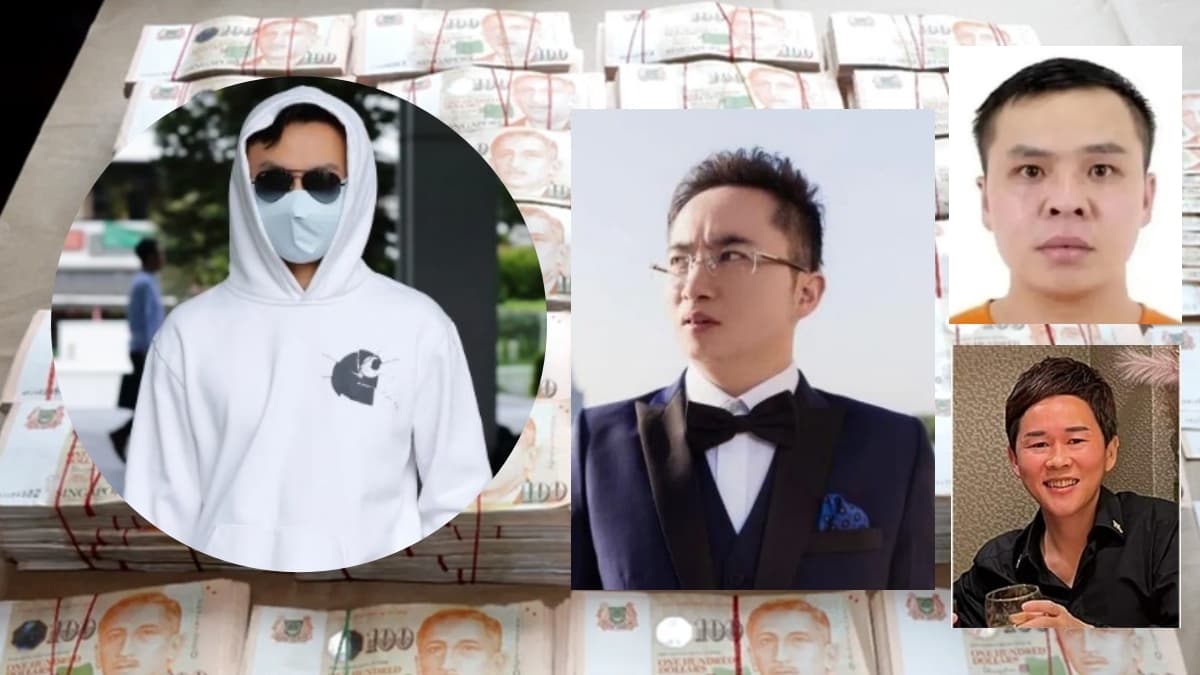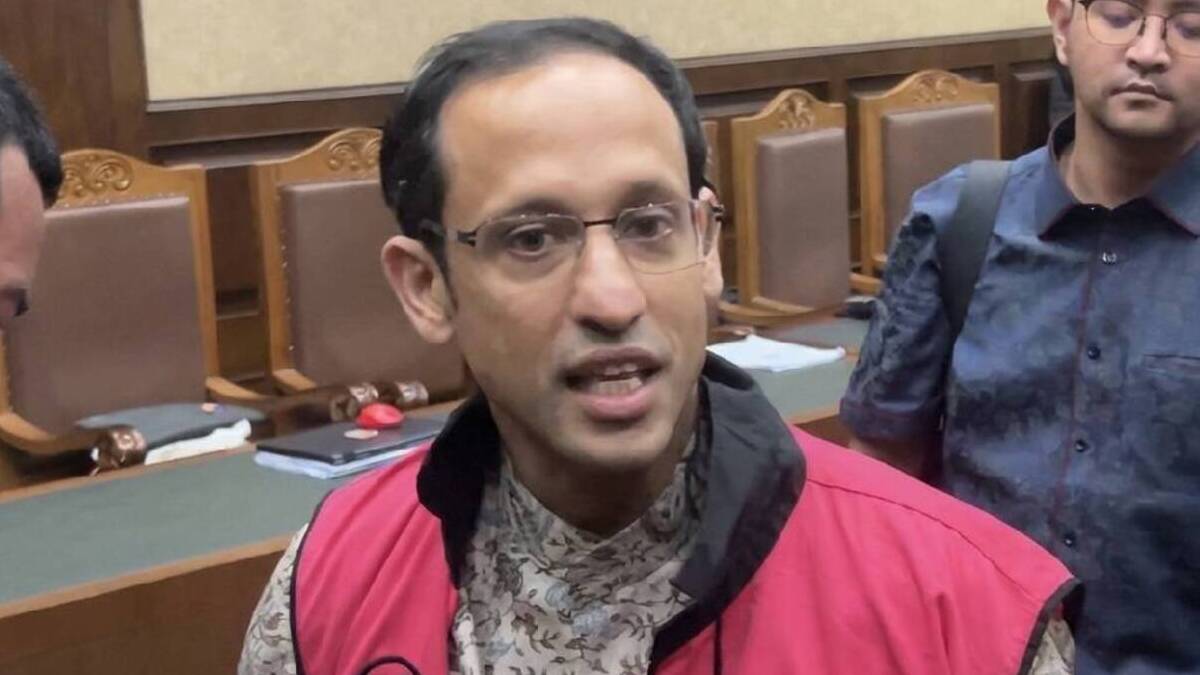Ex-Citibank relationship manager jailed two years for role in S$3B money laundering case
Wang Qiming, a former Citibank relationship manager, was sentenced to two years’ jail on 23 October 2025 for holding laundered cash, forgery, and obstructing justice in connection with Singapore’s billion-dollar money laundering case. The court found that Wang handled S$481,678 for convicted offender Su Baolin and falsified bank documents.

- Former Citibank relationship manager Wang Qiming sentenced to two years’ jail for holding laundered cash, forgery, and obstructing justice.
- Wang handled S$481,678 in laundered money linked to convicted offender Su Baolin in Singapore’s billion-dollar laundering case.
- Judge described Wang’s actions as “nothing short of egregious” and noted abuse of professional trust.
SINGAPORE: A former Citibank relationship manager has been sentenced to two years’ imprisonment for holding laundered cash, forging financial documents, and obstructing justice in connection with Singapore’s high-profile billion-dollar money laundering case.
According to state media CNA, Chinese national Wang Qiming, 27, was convicted of holding S$481,678 in laundered money for convicted money launderer Su Baolin.
District Judge Chay Yuen Fatt delivered the sentence on 23 October 2025, describing Wang’s conduct as “nothing short of egregious.”
Wang, who began serving his sentence immediately after the hearing, is appealing against the decision.
Six other charges were taken into consideration, including the forgery of a loan document to deceive Citibank into allowing a nearly S$1 million deposit into an account belonging to another accused, Vang Shuiming.
The case marks a further development in the billion-dollar money laundering investigation that saw 10 foreign offenders jailed and deported by 2024.
Three of those offenders, including Su Haijin, were among Wang’s clients during his tenure at Citibank.
Employment and motivation
Court documents showed that Wang joined Citibank as a relationship manager in August 2020.
His earnings depended on the volume of his clients’ financial transactions, incentivising higher activity levels.
According to the prosecution, Wang’s close engagement with clients like Su Baolin extended beyond legitimate banking duties.
He not only facilitated suspicious transactions but also personally collected and delivered cash proceeds later identified as criminal in origin.
Judge Chay noted that Wang’s actions reflected deliberate efforts to conceal the sources of illicit funds.
“Even if he had not known the full extent of his clients’ laundering activities, the fact remains that he helped to hide their proceeds,” said the judge.
He rejected the defence’s claim that Wang had been unaware, remarking that “money launderers could not have a label stuck to their head.”
Mitigation and defence
Defence lawyer Vinit Chhabra urged the court to impose a reduced sentence of seven to 11 months, arguing that Wang’s role was limited and that he did not profit from his involvement.
The lawyer said Wang’s introduction to Su Baolin came through a family acquaintance and that he had only carried cash for 30 to 45 minutes without receiving commission.
Chhabra further argued that Su Baolin was already a client of Standard Chartered Bank, which “must have” performed checks on the source of his funds.
However, the court found that Wang’s conduct — especially his forgery of documents to legitimise suspicious deposits — went far beyond an innocent mistake.
Deputy Public Prosecutor Louis Ngia called for a sentence between 24 and 30 months, citing premeditation and abuse of professional trust.
“The offences were serious and calculated,” said Ngia, adding that the laundered amount of nearly half a million dollars was significant.
The cryptocurrency transaction
According to a 23 Oct police statement, Wang's offences began in December 2020, when Wang helped Su Baolin arrange the sale of 1,499,980 units of the cryptocurrency USDT (Tether) in exchange for Singapore dollars through a third-party sales agent.
This arrangement was private and conducted outside Citibank’s official systems.
Su Baolin directed that the proceeds be transferred into his Standard Chartered Bank account in several smaller tranches to avoid scrutiny. Wang agreed and instructed the agent accordingly.
The first tranche involved 499,999 USDT, worth S$657,980, which was mistakenly deposited by an unknown individual named Se Liang through a personal bank account rather than a corporate one.
Angered by this, Su Baolin demanded that Wang create a false loan agreement to justify the deposit.
Wang complied, forging a “Borrowing Agreement” dated 20 December 2019, which falsely claimed that Se Liang had borrowed S$658,000 and would repay it within a year. The forged document matched the deposited amount, adjusted for minor bank charges.
Soon after, Wang collected S$481,678 in cash from the sale of 364,908 USDT and delivered it to Su Baolin’s residence in Singapore.
This money was later confirmed to be proceeds from illegal online gambling operations that Su Baolin had been running overseas since 2019.
Evidence and obstruction
When questioned by police in September 2023, Wang was shown his WhatsApp messages with Su Baolin, which detailed their coordination of the cryptocurrency sale.
He repeatedly claimed to have no recollection of the messages. Investigators later found that Wang deleted the WhatsApp application from his mobile phone during the early stages of a police visit to his residence on 12 October 2021.
Officers had spent nearly half an hour knocking on his door before he responded.
Within minutes of establishing contact, Wang deleted the app, erasing critical evidence related to his dealings with several clients.
While the messages with Su Baolin were recovered from the latter’s phone, data linked to other clients was lost permanently.
Judge Chay said the deletion demonstrated a clear intention to obstruct justice. “His actions hindered the investigation and reflected consciousness of guilt,” he observed.
Additional forgeries and false documents
Investigations also revealed that Wang forged several financial documents for clients beyond those tied to the billion-dollar laundering case.
Between February and July 2021, he created multiple falsified remittance receipts and loan agreements involving clients including Xie Yuyan, Chen Huangpei, Chen Chengbao, and Xu Yongkun.
These falsified documents were used to substantiate deposits ranging from S$999,980 to S$1,999,980, and even a US$299,980 deposit.
All were intended to deceive Citibank Singapore into accepting large inflows of funds that appeared legitimate.
In one instance, Wang fabricated remittance slips from Indonesian companies PT Surya Citra Remitan and PT Fajar Sukses Batam.
These were used to support deposits made into clients’ accounts, thereby concealing the true origin of the funds.
Legal consequences
For holding laundered cash, Wang faced a maximum penalty of three years’ imprisonment and a fine of up to S$150,000.
The offence of forgery with intent to cheat carries a potential sentence of up to 10 years and a fine, while obstruction of justice may result in imprisonment of up to seven years and a fine.
The court considered his age, cooperation, and lack of prior convictions but concluded that deterrence was paramount given the scale of the offences and his professional role.
Judge Chay emphasised that banking professionals hold positions of trust and must uphold strict compliance standards.
“His conduct undermined confidence in Singapore’s financial system,” the judge said, adding that leniency would send the wrong signal to others in the banking sector.







